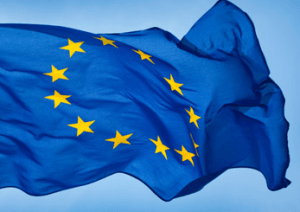EU executive plans to step up game against money laundering
 The European Commission on Tuesday presented plans to set up a new agency to fight money laundering, attempting to combat a crime that costs the bloc billions of euros each year.
The European Commission on Tuesday presented plans to set up a new agency to fight money laundering, attempting to combat a crime that costs the bloc billions of euros each year.
The agency would oversee financial institutions that are deemed as “high-risk” in the 27 member states – those that operate in multiple countries in complex cross-border operations, for example – and coordinate anti-money-laundering efforts with national agencies.
“Money-laundering scandals stain Europe’s reputation, … eroding [trust] in banks and financial institutions, and also authorities,” the commission’s executive vice president, Valdis Dombrovskis, said in an interview with dpa and other international outlets.
The agency would employ about 250 people, Dombrovskis said.
According to law-enforcement agency Europol, 10 financial intelligence units in the EU signalled suspicious transactions totalling around €178.8 billion ($213.2 billion) in 2014 – up from €99.4 billion in 2013.
This constitutes, Europol estimates, between 0.7 and 1.28 per cent of the EU’s annual gross domestic product (GDP).
The commission estimates money laundering to cost around 1 per cent of GDP annually.
But instead of a unified and effective response to money laundering, efforts to combat the crime remained fragmented, the European Court of Auditors found last month.
To harmonize the rules, the commission also suggests amending EU rules to make them directly applicable across the bloc, instead of leaving it up to member states to write them into their own laws.
While the EU had introduced anti-money-laundering legislation decades ago, “also criminals are becoming more imaginative, so our laws need to keep up with the developments,” Dombrovskis said.
The agency could impose sanctions in case of misconduct.
The proposal still needs to be green-lighted by the EU countries and European Parliament.
The commission also intends to set a maximum of €10,000 for cash transactions. Countries that have stricter limits, such as Spain and the Netherlands, can keep them.
Another major part of the commission’s anti-money-laundering package is to include cryptocurrency in its existing legal framework to close existing loopholes.
“Cryptoassets are increasingly used for money laundering and other criminal purposes,” Dombrovskis said.
However, this only applies to transactions within, to, or from the EU.
Source: GNA
